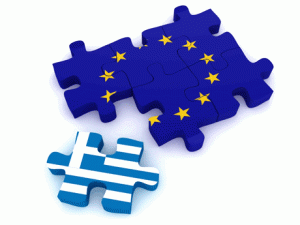Vain attempt to elect Stavros Dimas as the Greek President on 29th December brought forth a new wave of uncertainty about the prospect of Euro. Recent opinion polls suggest that the radical left leader Alexis Tsipras is leading and could win the snap parliamentary election which will be held on 25th January. Mr. Tspiras has long been a strong advocate of additional social welfare packages, reversing the public spending cuts as well as public debt restructuring.
The Eurozone policy-makers are now facing a growing dilemma over the likelihood of a victory of Alexis Tsipras. On the one hand, keeping Greece inside the Euro is good for its strength and stability. On the other hand, there is mounting reluctance from national voters to spend extra money help a country which is not willing to take serious measures to tackle their debt problem. The current atmosphere resembled to the situation in Greece in 2012 in which the whole Europe was very concerned with the result of an election which might potentially lead to the exit of Greece from Euro and eventually a “euro-zone breakdown”. However, this time the situation is quite different.
First, the market’s reaction was relatively calm. Despite a plunge in the Greek stock market and a massive selloff of Greek bonds following the unsuccessful election of Stavros Dimas, the major European stock and bond markets remain relatively stable. Second, the “domino theory” seems not taking place this time as in 2012. The bond rates of more vulnerable countries such as Spain and Italy have not been affected by the incident in Greece and remain well below 2%. The contagion effect that we witnessed in 2012 is so far non-existent. Moreover, as the aftermath of the turbulence in previous years, the Eurozone has developed a better firewall system against all these adverse scenarios, for example the European Stability Mechanism (ESM) which can provide bailout funding for vulnerable countries against fluctuations in the market. Learning from the lesson in 2012, banks and large companies have minimized their risk exposure by reducing their weight in Greek debts and related assets.
Consequently, the Eurozone leaders are now less fearful of Greek problem and would be less likely to grant concessions to Greece. Even if Alexis Tsipras could win the upcoming election, Greece cannot sustain its economy without additional bailout cash from Troika (IMF+ECB+EU). Failure to reach a deal between the Eurozone and Greece would inevitably lead to the bankruptcy of Greece and ultimately “Grexit” from Euro. The stake is so high for both the Troika and Greece and it will be a very tough and uncertain bargaining process.


